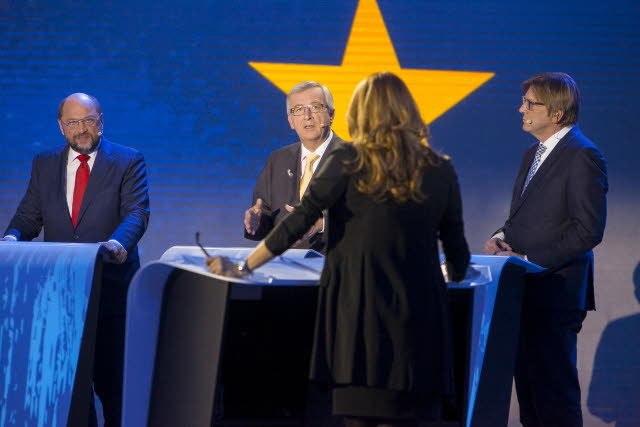Imagine a presidential campaign in which the leading contenders are unknown to the vast majority of the public, voters cannot directly cast their ballots for the candidate of their choice, and the eventual winner can be struck down in favor of a more palatable politician by ruling elites. This may sound like a sham election in a post-Soviet dictatorship. But in fact, it is the slightly surreal circumstances of the world’s first transnational presidential campaign.
From May 22 to 25, 380 million voters in the EU’s 28 member states are invited to the polls — as they are every five years — to elect 751 members of the European Parliament (MEPs). The difference this time is they can also play a part in picking the next president of the European Commission, the bloc’s executive body.
“Until now, the commission chief has been chosen in much the same way as the pope.”
The scheme is not short of critics among Europe’s pundits. Open Europe, a mildly Euro-skeptic think tank based in London, argues that the European Parliament has “failed to gain popular democratic legitimacy” and that its candidates for the plum post “are unable to connect with what remain national electorates.” An op-ed in theEconomist last week called for the European Parliament to be “downgraded” and urged EU leaders to “stand against its latest power grab.”
But the new election is really a step toward more democracy in Europe, giving voters a bigger say in choosing who runs the EU than they have ever had before. And that’s a good thing.
